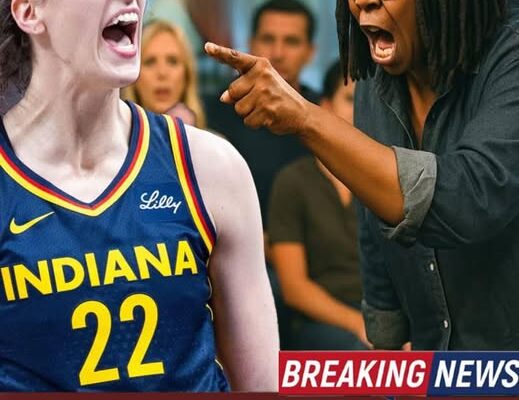The assertion that Whoopi Goldberg criticized Caitlin Clark as “just another white girl trying to take over a Black sport” on The View is incorrect based on available information. In fact, multiple reports and transcripts from The View indicate that Whoopi Goldberg passionately defended Caitlin Clark’s talent and achievements against criticisms of “white privilege” and “pretty privilege” made by her co-host Sunny Hostin and others.1
The controversy surrounding Caitlin Clark’s entry into the WNBA has indeed included discussions about race, privilege, and the historical demographic makeup of the league.2 However, Whoopi Goldberg’s stance has been consistently one of strong support for Clark’s on-court prowess as the primary driver of her popularity.
Here’s a breakdown of what actually transpired on The View and the surrounding context:
During a segment on The View that addressed Caitlin Clark’s popularity and the increased attention on the WNBA, co-host Sunny Hostin argued that Clark benefits from “White privilege” and “pretty privilege.”3 Hostin stated, “I do think that there is a thing called ‘pretty privilege.’ There is a thing called ‘White privilege.’ There is a thing called ‘tall privilege.’ And we have to acknowledge that.”4 She also echoed sentiments from others, like Jemele Hill, who suggested that Clark’s race and sexuality played a role in her widespread popularity, especially compared to the established, predominantly Black and often LGBTQ+ WNBA players.
Contrary to the statement in the prompt, Whoopi Goldberg strongly pushed back against these claims. She emphatically defended Clark’s athletic achievements, emphasizing that her success is earned through talent and hard work, not just privilege.5 Goldberg’s key points included:
- Focus on Talent and Records: Goldberg waved a notecard displaying Clark’s impressive statistics, including her NCAA all-time leading scorer title, for both men and women. She asserted, “This girl earned this! I’m sorry, there are great players, but nobody else has done this. So I’m not mad that they gave her a basketball.”
- Rejection of Privilege-Based Explanations for Success: Goldberg compared the remarks about Clark’s privileges to racially charged comments like, “Oh, you only got into this Ivy League college because you’re Black,” highlighting the unfairness of discrediting hard-earned achievements based on race or appearance. She said, “To have her reduced that way bothered me a lot because this is her record. Unless you can show me who’s got a better record than this, this is why she’s getting the attention she’s getting, because she’s a damn good player and doesn’t matter whether she’s straight or gay, ain’t nobody crying when she’s making those balls.”6
- Long-Standing Support for the WNBA: Goldberg also pointed out that The View had been trying to bring attention to the WNBA for years and that the current surge in viewership, largely attributed to Clark, was a positive development for the entire league. She expressed excitement about the increased visibility for all players, stating, “The View has been trying to bring attention to the WNBA for years and had been begging people to pay attention. These women are oftentimes equally, if not better sometimes than the folks you’re watching.”
- Call for Broader Recognition: While acknowledging Clark’s unique impact, Goldberg also suggested that companies like Wilson should create a series of basketballs to honor other extraordinary female players in the WNBA, advocating for more widespread recognition within the league.7
The discussion on The View is part of a larger, complex conversation surrounding Caitlin Clark’s immediate impact on the WNBA. The league has historically been predominantly Black, and many of its veteran players have toiled for years without the mainstream attention and endorsement deals that Clark has instantly garnered. This disparity has naturally led to discussions about:
- Visibility and Marketability: Why has Clark, a white, heterosexual player, resonated so broadly with a new audience in a way that many highly skilled Black players have not, despite years of excellence? This question often leads to discussions about racial biases in media, marketing, and societal perceptions of athletes.
- “Pretty Privilege” and “White Privilege”: These terms are used to describe the unearned advantages that individuals may receive based on their appearance or racial background, respectively.8 Some argue that Clark’s rise exemplifies these privileges within the sports landscape.
- Veteran Player Frustrations: Some veteran players have expressed frustration, not necessarily with Clark herself, but with the sudden influx of attention and perceived preferential treatment, arguing that it overshadows the contributions of those who built the league. This has led to some highly physical play against Clark, which then sparks further debate about “toughness” versus “dirty play.”
- The “Savior” Narrative: There’s a debate about whether Clark is being unfairly burdened with the “savior” narrative for the WNBA, and whether this narrative implicitly diminishes the league’s existing talent and history.
The statement in the prompt, falsely attributing a racially charged comment to Whoopi Goldberg, highlights the potential for misinformation to spread rapidly, especially regarding sensitive topics like race and sports. Such misattributions can fuel unnecessary outrage, misrepresent public figures’ actual opinions, and detract from the real, nuanced conversations that need to happen. In this case, Goldberg’s actual comments show a desire to celebrate talent while advocating for broader recognition and addressing disparities, rather than criticizing a player based on their race.
To reiterate, Whoopi Goldberg did not criticize Caitlin Clark as “just another white girl trying to dominate a Black sport.” Instead, she robustly defended Clark against such reductive arguments, emphasizing Clark’s genuine talent and earned achievements as the reason for her unprecedented popularity. The debate on The View, and in the broader sports world, is indeed complex, touching upon issues of race, privilege, and the commercialization of sports. However, Goldberg’s role in this conversation has been that of a staunch defender of athletic meritocracy and an advocate for increased attention for the entire WNBA, regardless of a player’s background.



